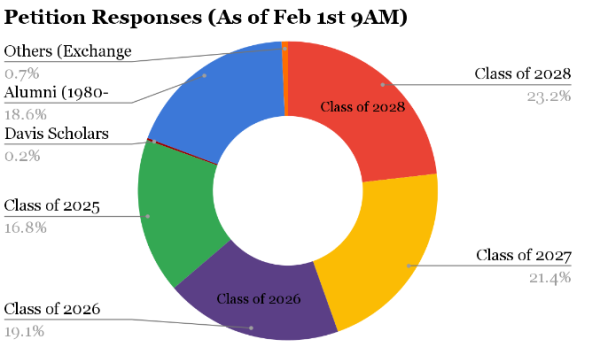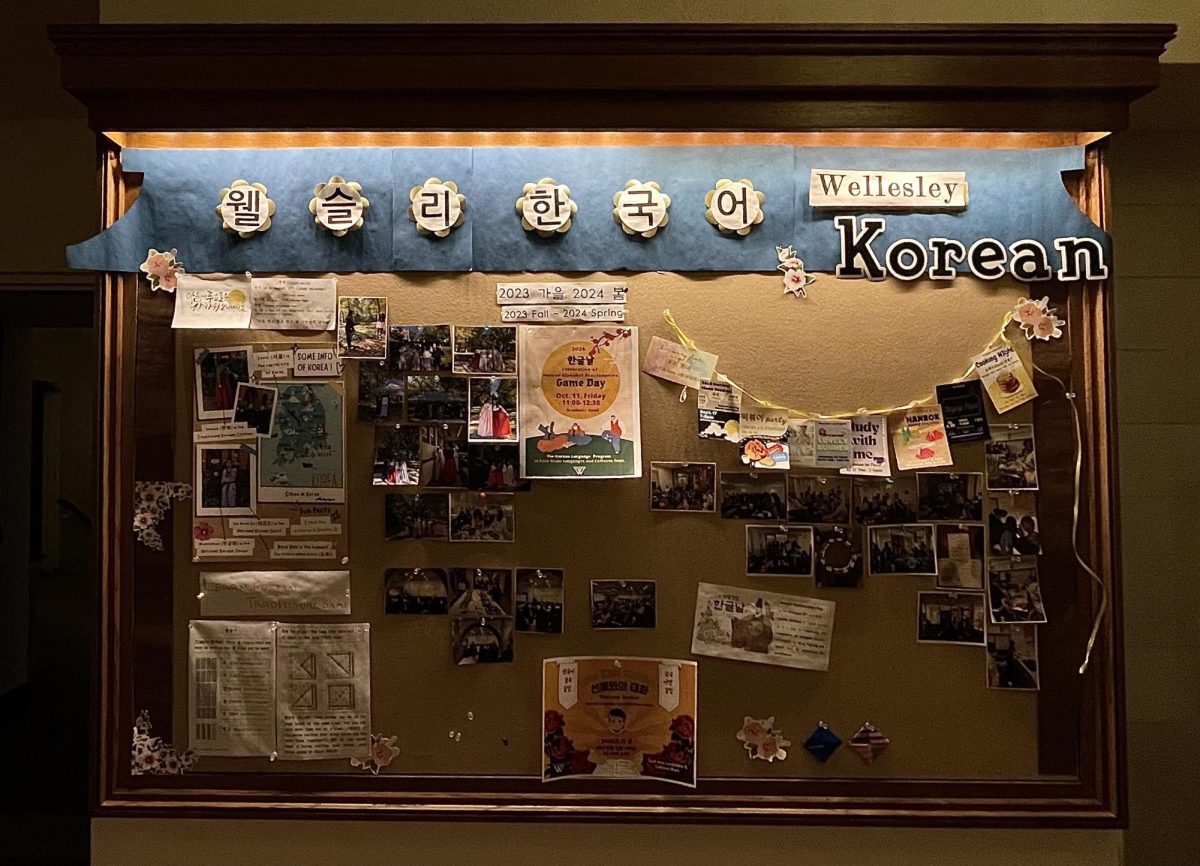On the first day of spring semester classes, students in the Korean program were surprised to hear their professor, Eun Ha Hwang, announced that her lecturer contract was not renewed by Wellesley College and she would not be returning for the next academic year.
“We were all incredibly shocked … because of the fact that she’s been such a pivotal person in the Korean department since we’ve all gotten here,” said Aiquana Maye ’27.
Professor Hwang, who joined Wellesley in 2020, is one of three professors in the program, and is one of its two non-tenure track faculty. Hwang teaches 200-level Korean language courses, including KOR 201, KOR 202 and KOR 232, instructing approximately 30 students per semester.
Hwang’s departure could affect nearly 43% of students enrolled in the Korean program. Still, the percentage of students affected may be more: since 2005, the Korean program has seen a rapid rise in enrollment.
“She created a lot of the curriculum for the entire department’s language learning. In our classroom, we learn through a storyline of characters. This storyline has been used since our first semester, and it helps us be familiar with how Korean native speakers interact with each other,” said Maye.
Beyond teaching, Hwang researches language learners’ identities and connects with students through K-Table and K-Corridor, language-speaking and cultural activities which allow students to engage with Korean outside of the classroom.
“Every week, Professor Hwang would show up [to K-Table], and that's how I met her. The other professors would also come, but I think she is the most consistent,” said Vivi Li ’26.
In response to Hwang’s departure, Maye and Li organized a petition urging the Provost’s Office to reconsider the administration’s contract decision. On Jan. 23, they sent the petition to students who had previously enrolled in the EALC courses.
Within six days, the petition garnered over 850 signatures and more than 120 personal statements from students, alums and faculty. As of Feb. 2, the petition had received 904 responses.
“Most notably, we had alums from the class of 1980 up until 2024 responding … Most of these alums don't actually know Professor Hwang, but they were very passionate in their responses. And also, a lot of these alums were either language majors or they have Korean heritage, or they have kind of a deep care of the education system at Wellesley,” said Li.
Maye received a response from Megan Nunez, Dean of Faculty Affairs on Jan. 31, but remains concerned about the future of the Korean program, which is approaching its 20th anniversary.
“[The email] had said, there's a potential 11 classes to be taught next year, and I just don't see how that's feasible with two professors, unless they plan on hiring another professor,” Maye said.

Additionally, The Korean Student Association (KSA) and Wellesley Asian Alliance (WAA) are organizing an open discussion on Feb. 5 from 4 to 5:30 p.m. at PNE. This discussion, featuring Professors Lee and Hwang, will invite students to learn about the EALC department and language corridor program while sharing perspectives on language education and the program's history.
“I'm hoping to get a sense of what the professors would like to see from us as students, because as students, I recognize that there are limitations in what we can do, but we want to support them the best we can,” said Nico Jo ’25, KSA’s Social Justice Chair and one of the event organizers.
Ultimately, students hope that their efforts will create change for the Korean program and beyond.
“Every major at Wellesley is important no matter how small their department is, and every professor isn't just someone who they're paying to teach something. They're a part of a community that is helping students discover who they are and find out what they love in the world,” Maye said.
Contact the editors responsible for this story: Jessica Chen, Sazma Sarwar, and Valida Pau.


